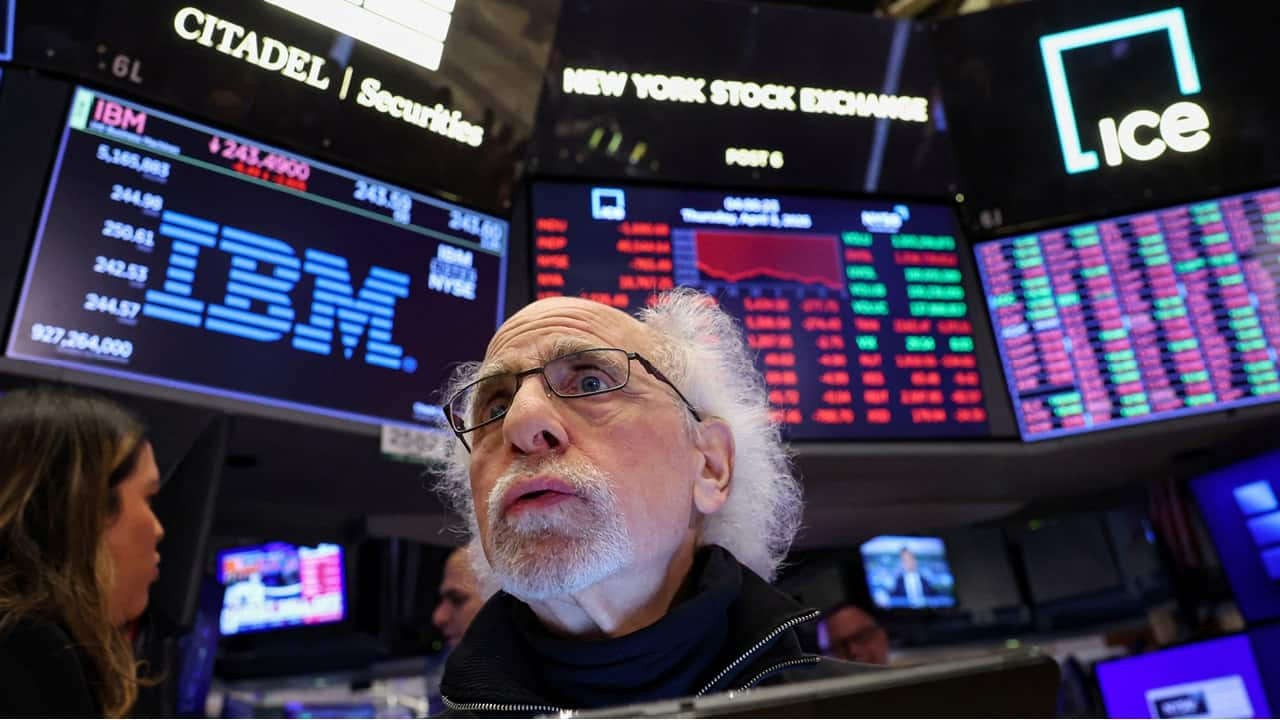Wall Street Holds Steady, Nasdaq Edges Up Post-Inflation Data

US stock markets exhibited stability on Wednesday, reacting to a new inflation report which suggested that President Donald Trump's widespread tariffs had not yet caused a significant surge in prices. In early trading, the S&P 500 saw a marginal increase of less than 0.1%, while the Dow Jones Industrial Average experienced a slight dip of 23 points. The Nasdaq composite, however, managed a 0.2% rise in the initial trading minutes.
This relative calm in the equity markets occurred despite emerging signs of inflation. A report from the Labor Department indicated a modest monthly increase in prices, which was notably milder than economists had anticipated. The bond market showed a more definitive reaction, with Treasury yields declining in response to this economic data.
Global equity markets also registered gains, largely buoyed by positive developments in international trade relations. News that the United States and China had successfully agreed on a framework to continue their trade negotiations provided a significant boost. This agreement builds upon a delicate truce reached in Geneva the previous month and was further solidified during two days of discussions held in London.
In Europe, market performance was positive: France’s CAC 40 climbed 0.3%, Germany’s DAX advanced by 0.1%, and the UK’s FTSE 100 rose by nearly 0.2%. Asian markets also saw strong gains. Japan’s Nikkei index jumped 0.6%, partly due to a slowdown in wholesale inflation. South Korea’s Kospi surged by an impressive 1.2%, driven by easing concerns over tariffs and growing investor confidence in the market-friendly policies of the new President, Lee Jae-myung.
The context for this market behavior includes President Trump's earlier tariff implementations, which had precipitated a substantial 20% market decline just two months prior. The current market rally is indicative of investor optimism that the administration might reduce duties following the establishment of new trade agreements.
Nevertheless, some financial analysts have voiced skepticism regarding the tangible outcomes of the US-China discussions. Stephen Innes of SPI Asset Management, as quoted by AP, remarked, “If markets were expecting substance, they got process instead,” characterizing the London talks as a reaffirmation of pre-existing commitments rather than a breakthrough. Conversely, US Commerce Secretary Howard Lutnick conveyed a more optimistic outlook, stating to reporters in London that the discussions with China were progressing “really, really well.”
In commodity markets, oil prices saw a slight increase. Benchmark US crude oil rose by 24 cents to $65.22 per barrel, while Brent crude increased by 17 cents to $67.04 per barrel. In currency markets, the US dollar appreciated slightly against the Japanese yen but experienced a marginal decline against the euro.
Overall, financial markets appear to be in a holding pattern. Investors are closely monitoring for more definitive signals from both the ongoing trade negotiations and the Federal Reserve. The central bank remains cautious regarding future interest rate adjustments, factoring in the lingering uncertainties surrounding inflation and the impact of tariffs.












